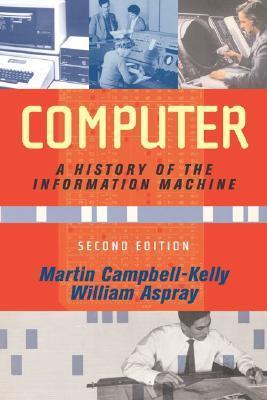The book provides a comprehensive history of computing, describing not only the grand figures but the "mundane" tasks of handling information, data-processing and accounting, that computers performed throughout history. A lively written book that does not require any background knowledge. It takes the reader from computing tasks before electronics came about (Babbage and Lovelace), to evolution of IBM mainframe computers between 1945 and 1980, and closes with a discussion of personal computing and the internet. Campbell-Kelly tracs the two key themes throughout these phases. First, "improvement of components", processing speeds and increased storage -- somrhitng that manufacture is responsible for. Second, "the mode of operation" are the "soft" practices and concepts, such as high-level programming languages, real-time computing, time-sharing, networking, and graphically oriented human-computer interfaces. This part is contributed to by the academia.

